Alyssa Hubbard's Blog, page 9
May 28, 2018
4 ways to change your work environment for the better
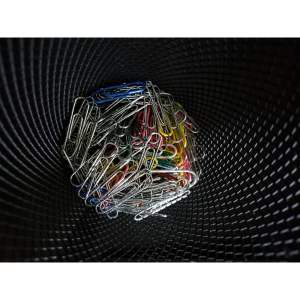 Since finding my first real job out of college, I’ve started working with some of the most brilliant people I’ve ever met. It truly is a privilege. Even so, we all are very strong in our beliefs, opinions, and ideas, and that, of course, bleeds into our work. As I’m sure you can imagine, this causes a bit of tension. However, like I said, I work with some brilliant people, and they have taught me a lot about how I can alter my work environment for the better. Here are a few of those:
Since finding my first real job out of college, I’ve started working with some of the most brilliant people I’ve ever met. It truly is a privilege. Even so, we all are very strong in our beliefs, opinions, and ideas, and that, of course, bleeds into our work. As I’m sure you can imagine, this causes a bit of tension. However, like I said, I work with some brilliant people, and they have taught me a lot about how I can alter my work environment for the better. Here are a few of those:
Respond, don’t react
When you get a seemingly passive aggressive email, post-it, letter, etc. it’s very easy to take that shocked, hurt, angry feeling and throw it right back at the person. It will probably feel good for a second, but did that really help rectify the situation? When you coworker gets your response, how do you think they will react? Don’t be the one who reacts. Stop, reread it, think through the message, think through the voice you might have used to read it initially, then craft a response. Try to assume the best so you can, hopefully, avoid the worst.
People aren’t mind readers. Over explain.
We have a bunch of processes at work to help ensure everything gets done as close to perfect as possible. Of course, people want to take shortcuts and may not do everything 100%. This will probably make your job harder. It’s very easy to get angry, complain, gossip, etc. again, though, try to assume the best to avoid the worst. If you must request new paperwork, if you must ask for more information, whatever you need to request, or request be fixed, try to explain why this information is pertinent to the process. They may not understand the importance of something and assume it isn’t important at all. Really, if they have never done your job, how would they know what is/isn’t important? Over explain, open your world to them, and maybe they will be able to see it from your side and do better.
Remember, everyone’s a middle man
This line was so eye-opening for me because it is so true. Unless you are working right under the CEO, the founder, the sponsors, etc. chances are, they are doing something because they told to do it by a higher up. They more than likely aren’t trying to make your life harder, purposefully. Try to assume that whatever odd, inconvenient request that comes your way is only coming through this person because it was forced on them. Makes the whole situation much more palatable, I feel.
It’s all about perception, so change yours
Pretty much everything I suggested prior to this point has been all about changing your own perception on things. The reason for this? Let’s face it, you can’t make people change. You can’t control the people around you, but you can control yourself. Change starts with you. If you assume and perceive everything as negative, then everything is going to be negative. If you can alter your own perception, then your work environment will begin to change. Of course, this is easier said than done. It takes a lot of behavior changes and mental exercises, but you’d be surprised how much changes based on your attitude. Change can happen. Go for it.
What do you think? Do these seem a bit too obvious? Have you done anything like this before? Are you going to try any of these tips? Let me know, and comment below! Thank you so much for your time.
Lissy
May 21, 2018
6 ways to make your writing pack an emotional punch
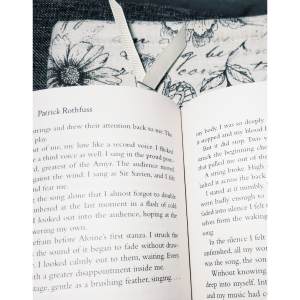
I’m reading a book right now that is making me feel things. This, from a writer’s perspective, is an awesome accomplishment. He, the author, has created characters that make me hurt. He has put me in scenarios that scare me, all despite it being based in a fantasy world that couldn’t possibly exist. Even so, it moves me, and carries real world weight for me as a reader. How cool as that?
Pretty flipping cool from the view of a writer, but super inconvenient for me. I am an emotional sponge. If I am already upset, knowing others are upset (even for completely unrelated reasons) will only intensify my emotions. On the flip side, if I am in a depressive mood, but surrounded by happy people, I will easily perk up. One of the worst situations, though, is when I am in a good mood, then a character’s emotions drag me into depression with them.
I wanted to take a moment and figure out what made this character real to me, and gave him enough emotional weight to drag me down with him:
The character wasn’t built on negativity
Any time I recall a “mary-sue” or “gary-stu” character, I can’t think of a time their character wasn’t enduring some tragic event. There are plenty of compelling stories where real people have lived mostly tragic lives, but the key there is “mostly.” There must be highs to know how low the lows go. If we are always wallowing in the valley, we don’t really know how far down we are. If we start at the top of the mountain, then we can see how far we have fallen and how much there is to lose. This is the key to developing a real character.
The supporting characters a well-developed and matter
This is probably super obvious, but it is worth mentioning. While it is of utmost importance to focus on and develop the main character, don’t let those supporting characters fall to the wayside. Relationships are hella important in both life and in your writing. Relationships can bring your character down, as well as help build them back up.
How others react to your character can be just as powerful
There is a point in this novel where a supporting character reacted so gentle and kind to the main character that it made the main character’s emotions much more real to me. So just like you don’t want to have an underdeveloped supporting cast, you also don’t want to forget who is in the room with your character when something is happening. If the main character is in a bar and hears word of his mother passing, how does he react? When he reacts, how do those closest to him react? I don’t even mean how do his friends or relatives react. I mean within a proximity of your character when they get the news. How do they react to the character’s reaction? This can create a wonderful reflection of your character, as well as help intensify that emotion.
There is more than just sadness
I think a lot of writers forget about other emotions. Sadness is so powerful and is very easy to visually represent in writing. However, some of my favorite novels explore many layers of emotion. Anger, jealousy, happiness, etc. All these emotions are powerful. Of course, don’t hesitate to give me some sadness, but that sadness is so much more poignant when we know how the character acts while feeling all the other layers of emotion.
Don’t discount the small stuff
Of course a character’s parents dying is going to be painful for a reader. Of course, the birth of a baby is probably going to be a joyous moment for the reader. These are major, life-altering events that many people can probably empathize with in some way, but you what else a reader may empathize with? The feeling of finishing a really good book, the feeling after hearing your supposed friend make fun of you, the feeling of stubbing your toe on your bed post, the feeling when a close friend moves away etc. These small events may not illicit strong emotions, but it creates different levels of emotion for your character. It’s easy to show a baseline, content character, and it is nearly as easy to show a character reach a deep level of any particular emotion. It is just as important, though, to show varying levels of these emotions, so the character is real to the reader.
Life isn’t convenient, don’t make the bad stuff convenient
How many times have you heard of people getting into car wrecks on their way to their last final for the semester? There has been so much build up, so much riding on this, and the person is either super confident or super terrified, but all that changes in an instant when they get into a fender bender on the road. Now they are worried about paying to have their car fixed. Now they must make up the final. Now they must worry about insurance going up. Suddenly the anxiety from before seems much more insignificant than it did when it was the person’s only focus. That’s how life works. I feel the bad stuff almost always happens when we are already dealing with a lot. It is shocking in real life, and it will be just as shocking on the page, but, again, you don’t have to always focus on the negative. Maybe something wonderful happens during a tragedy. Surprise us!
Just based on what I’ve read so far in this book (possible post about it later), these are some of the key elements in making an emotional sponge like me a sloppy mess. What do you think? Let me know, and comment below!
Lissy
May 14, 2018
I’m a Binge-Eater
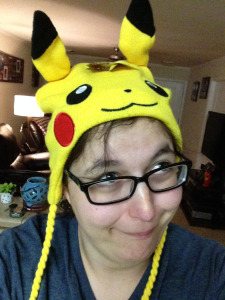 When I started this blog, I started it with the goal of running a “talk-shop” blog. I was going to talk about books, writing, writers, and publishing, all as I pursued my dreams of becoming an author. I wanted to meet other writers, make connections, make life-long friends that I could Skype with over hot coffee and talk about our craft. I just wanted to write about writing.
When I started this blog, I started it with the goal of running a “talk-shop” blog. I was going to talk about books, writing, writers, and publishing, all as I pursued my dreams of becoming an author. I wanted to meet other writers, make connections, make life-long friends that I could Skype with over hot coffee and talk about our craft. I just wanted to write about writing.
The longer I write and post, the more I realize that I really needed this to write about myself. I have been suffering with something I’m finally ready to admit is a problem: binge-eating. I binge. Sometimes it doesn’t feel like it’s ever going to end. Other days, I feel like I can stop. Food is my enemy, at least that is how I used to think. I am my enemy. Part of it is from stress, part of it is from loneliness… and for some reason, the only way I know how to cope is to eat.
I don’t want pity. Believe me, I’m going to be okay.
Sugar and fast food seem to be my favorite drug. Occasionally, I will go and get something from McDonald’s. “The dollar menu is so enabling,” I tell myself. It’s another excuse. I stop at the dollar store and pick up a bunch of candy bars and snack cakes. “This is too good of a deal,” I tell myself. Excuse, after excuse… When I get home, I look at my hoard, and I start by making a deal with myself. I will have just one cake and one burger. That will be my dinner and dessert. That’s how it starts, but the moment I take that first bite, it’s over. One box of snack cakes, one bag of $1 hamburgers down, my stomach hurts, my wallet hurts, and despite everything, my heart still hurts.
It feels so good when it’s happening, though.
Once again, I don’t want pity. Think of this as a journal entry you happened upon. One entry in an old, tattered journal you found abandoned on a park bench one day. Out of curiosity, you peek, and here you are. I’m tired of suffering in silence. I want to be better, and I’m going to get better. I promise.
Lissy
May 7, 2018
The Benefit of Joining a Book Club, for Writers
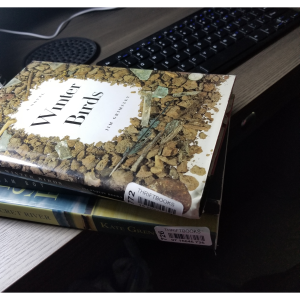 One of the first pieces of advice you will ever receive as a writer is to read. Subconsciously, reading helps you learn to write in a variety of ways: you pick up grammar skills, you learn a variety of writing styles, you learn about story structure, character development, etc. All these are wonderful skills that every writer needs to develop. However, reading is a solo activity in most cases, and completely internal. Two writers could read the same novel, and each come away with totally different opinions, skills, thoughts, etc.
One of the first pieces of advice you will ever receive as a writer is to read. Subconsciously, reading helps you learn to write in a variety of ways: you pick up grammar skills, you learn a variety of writing styles, you learn about story structure, character development, etc. All these are wonderful skills that every writer needs to develop. However, reading is a solo activity in most cases, and completely internal. Two writers could read the same novel, and each come away with totally different opinions, skills, thoughts, etc.
One piece of advice I wish I received when I began to pursue writing is to read… and join a book club. Join a book club, start one, whatever… then suggest a book you have enjoyed, or maybe a book from a genre you are interested in writing, etc. Then go in to the meetings and take notes. Take note of what people enjoyed, but especially what the majority disliked. Did it line up with what you thought? If it did, great. If not, even better. Regardless, here’s a list of things to learn from book clubs and why:
If they like a book, listen and learn why
Did they like a character? How was he/she developed? Did they like the end? Was it satisfying? What led up to it to make it so satisfying? Take notes on what they liked, then figure out why they liked it. Then you can take those elements and apply them to your own writing.
If they dislike a book, listen and learn *harder*
Did the character they were supposed to root for? Was it because he/she was underdeveloped? Did they even finish the book? Why not? Pacing? Were they a fan of the genre to begin with? That last question is probably one of the most important to consider. I am not a big fan of crime novels, so of course I am not going to look favorably on it. However, I am a huge fan of fantasy novels. It’s rare for me to dislike a fantasy novel. There must be a pretty good reason for me not to enjoy a fantasy novel, even on a superficial level. Keep that in mind.
Try some new genres
I think every writer kind of falls into a niche. I love writing in the fantasy genre. I love reading fantasy, but I am kind of stuck in a fantastical loop. Of course, there is nothing wrong with having a favorite genre, but I do think there can be a lot to learn from other genres. Use the book club as a chance to explore. Try on a new genre. What makes it different from your favorite genre? Can you use some of the new elements in your own writing? Heck, maybe you’d like to write something in a new genre! Explore and have fun.
Listen to how your book club peers describe a book
This is how the average reader will review your work. Every writer should be a reader, but not every reader will be a writer. I have found there is a distinct difference in how readers talk about books, versus how writers talk about books. Take in that language. Remember how the negative and the positive sounds. If you are serious about writing, you are going to hear those voices a lot. Enjoy it and learn from it. Heck, use it! Enjoy being a reader. It’s easy to forget that’s how most of us started.
Learn to make friends, lots of them!
This is more of something I learned from being in a book club. Reading is a lonely activity and writing even more so. Use this time to enjoy literature with others. Laugh, talk, read, and write. Enjoy the moment of being in a group. It isn’t often we get to do that.
Of course, book clubs will help you grow as a writer, but they can really help you grow as a person, too. I encourage anyone to try one at least once. If nothing else, you may just make new friends and find new books to enjoy!
Thanks so much for reading! What do you think? Have you been in a book club? Did you enjoy it? Comment below and let me know.
Lissy
April 30, 2018
What I’m Reading: “Gyo,” “Uzumaki,” and “Tomie” by Junji Ito [part 3]
Warning: There *might* be spoilers ahead.
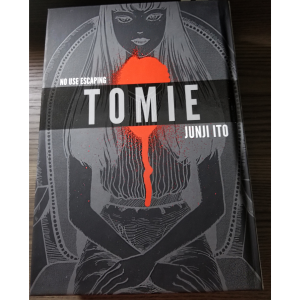 Tomie
Tomie
Of the Ito-trio, this was the most… meh, for me. It certainly started with the worst art, though by the end, it was just as beautiful as the art in Uzumaki (my fave). The story also follows a pattern, like Uzumaki. Each chapter follows a structure, and almost always ends the same, which made this manga boring and predictable for me. This one also took me the longest to finish, which I blame on the lack of diversity in each chapter’s plot. Speaking of plot, let’s go over how this starts.
Tomie begins at a school where a young, female student (that we never see again past the school portion of the story) tells us that her friend Tomie Kawakami was murdered, chopped into pieces, and scattered about the town. Who could do such a thing? Well, Tomie is quite the looker, though her bully attitude leaves much to be desired. She entertains the affection of a particularly jealous boy but maintains an intimate relationship with her teacher. On a field trip, she confesses to her teacher, to get him to marry her, that she is pregnant with his child. The jealous boy overhears, becomes enraged, and goes after the teacher. The teach, on the other hand, becomes enrage, and pushes Tomie off a rocky precipice.
Believing she is dead, the teacher encourages all the male students to remove their uniforms and help chop her into pieces. They all comply while the girls watch in horror. Much to their surprise, Tomie is still alive, but the teacher has already started, and he won’t stop. Hesitantly, the other boys follow.
Once she is separated into pieces (and the teacher perversely confirms the pregnancy was a lie), everyone takes a piece of her and hides it. With the deed done and the murder unsolved, life goes on… including for Tomie. Soon after she is brutally murdered, she returns to school, acting as if nothing has happened. From there, she guilts her murderers to turn themselves in, kill themselves in various ways, commit themselves to mental hospitals, or encourages them to kill her again in places and situations where they will be caught.
The story starts off as ghostly, revenge narrative, but quickly devolves into something much less interesting. Tomie goes from getting revenge on her killers to just ruining the lives of strangers. Of course, some people deserve the Tomie curse for various reasons, but there are some that are just randomly cursed by Tomie. When Tomie is the reanimated victim, despite her garbage personality, I am still rooting for her. Yas queen, slay your killers (literally). Once she started hurting the lives of strangers, she was more of an annoying catalyst for the various plots.
In a lot of ways, Tomie’s role becomes more figurative. She becomes a representation of various sins, vices, and obsessions. There is a story involving Tomie being dissolved in alcohol. It is quite clear Tomie represents or is the catalyst for alcoholism as the men find themselves unable to keep themselves from drinking the alcohol.
One thing I was happy to see, though, was that the way the original Tomie died made a constant occurrence throughout each story. It was a nice reminder of the ghost-revenge narrative from the beginning, and it really helped tie all the stories together in a morbid way. Men are uncontrollably drawn to Tomie. They become so enamored with her beauty that they, quite literally, want to cut her to pieces, only to find she can regenerate and multiply as a result. I found this super clever since the men were the only ones who took part in tearing her apart. Thankfully, the women aren’t spared either, but are usually tortured because of the men in their lives being tortured.
Overall, Tomie was super fun in the beginning, dragged in the middle, and left me kinda unsatisfied at the end. Still would recommend for any Junji Ito fan, because I can see elements of his other works, but I probably would not recommend this to every horror/body-horror manga fan.
Thanks so much for reading! Have you read this book? What did you think of it? Comment below, and let me know! Want to know what I am reading next? Join the book club: https://www.goodreads.com/group/show/...
Lissy
April 23, 2018
What I’m Reading: “Gyo,” “Uzumaki,” and “Tomie” by Junji Ito [part 2]
Warning: There *might* be spoilers ahead.
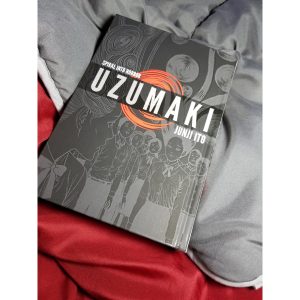 Uzumaki
Uzumaki
Of the three Junji Ito special edition titles, Uzumaki is my absolute favorite. No, Uzumaki is not about our fave ninji from the Hidden Lead, but more about what that name means. The word “uzumaki” translates to “spiral.” Yes, this manga is all about spirals, and the various forms a spiral can take.
The story takes place in Kurouzu-cho and mostly follows the characters Kirie and Shuichi – a young high school couple. Shuichi attends a school outside of their town, so Kirie meets him at the train station every day and they walk home together. However, one day, Kirie is on her way to meet Shuichi at the train station when she sees Shuichi’s father staring at the wall in an alleyway. She tries to say hello, but finds he is unresponsive. Not wanting to risk missing Shuichi, Kirie leaves the man and heads to the train station, but not before noticing the thing the man is staring at is a snail shell.
Once she meets up with Shuichi, they start home and Kirie tells him about the run-in she had with his dad. Shuichi isn’t surprised by the odd behavior. He then explains that his dad has been obsessed, haunted, even, by the spiral pattern. Shuichi goes on to say he believes the town is haunted by the spiral. The roads seem to spiral to the middle of town, the town is surrounded by fiddlehead ferns, and seemingly insignificant dust devils randomly sprout up throughout the town. From here begins the pattern, and things quickly spiral out of control (HA! See what I did there?).
The art in this is by far the best out of the Gyo, Uzumaki, and Tomie special edition trio. I think the story is also much stronger than the others, only because it follows a story pattern (a spiral), but the stories aren’t repetitive. Each iteration of the spiral is much more than a pattern and grows in intensity as we explore various elements of the town and meet new citizens. We can mark a distinct growth as the curse of the spiral continues to reveal itself. The spiral is a disease that slowly, but surely, drags the people of Kurouzu-cho into its center.
Even the reader is, ultimately, captured by this spiral. Junji Ito, in his notes at the end, goes into the inspiration for the story and explains how the human eye will naturally follow the pattern of a spiral all the way to its center. Even if we don’t know what we will find at its center, if it even has one. This study of the spiral is really captured in the journey the reader takes with the main characters. As you follow the pattern deeper and deeper in, you know the spiral is going to appear again. You don’t know how it will end, or if it even will. Regardless, Uzumaki is a whirlpool worth getting caught in. Just wait and see what is at its center.
Thanks so much for reading! Have you read this book? What did you think of it? Let me know, and comment below! Want to see what I am reading next? Join the book club: https://www.goodreads.com/group/show/...
Lissy
April 16, 2018
What I’m Reading: “Gyo,” “Uzumaki,” and “Tomie” by Junji Ito [part 1]
Warning: There *might* be spoilers ahead.
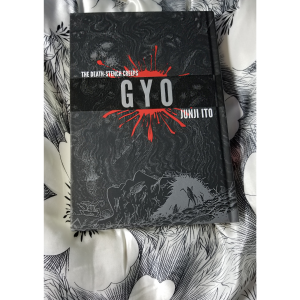 Gyo
Gyo
Of the three, this was my least favorite. Gyo starts with this couple Tadashi and Kaori on vacation. They are staying in Tadashi’s uncle’s beach-side home enjoying the sea and sun. However, it isn’t long before something goes awry. Tadashi goes in for a kiss and Kaori rejects him because she can smell the fish on his breath. Turns out, Kaori has a hella sensitive nose. They have a bit of a squabble and Kaori, determined to go back to Tokyo, leaves the house.
This appears to be the start of a dramatic, romance novel (or manga, rather). Unfortunately for Kaori and Tadashi, this isn’t a Shojo Beat manga. While Kaori is out on the street, having a fit, she catches a whiff of something… something she can only describe as death and decay. The smell is absolutely overwhelming. Where is the smell coming from, you may ask. A fish. A dead, rotten fish on a pair of pointy, robotic insect legs. It attacks anything with a pulse, and so begins the invasion of dead fish on insect legs.
As goofy as it sounds, I thought the concept was super interesting. These insect legs are actually man-made robots that use bodily scents to function. Ito focuses heavily on the scent and frequently refers to it as a death-stench. The process of death gives these creatures life. Death and decay, these processes we associate with the end of life end up creating it.
However, once the process of decay is complete, the mechanical legs have no power source, but, much like any living creature, their survival instinct pushes them to continue. Once the bodies have rotted away to nothing, the legs attach themselves to the nearest living beings, including household pets and humans. Then Ito presents us with the great moral question: what is life? Tadashi watches soldiers mowing down many of these human-robot-hybrids, and he meets a man attempting to create a circus where he tortures these creatures for the amusement of others. It’s all grotesque and horrific, and in some cases the regular humans seem to be much more monstrous than the monsters.
Ultimately, though, I didn’t think the story was all that interesting. Despite how long it is, I feel it could have dwelled longer at some points and on some of the aspects of the world. For example, it is revealed that the decaying creatures may have some sentience. They are humanized for just an instant. An instant, and then it is over. The art was good, and the concept kept me reading, but it felt… superficial. Still, would recommend to any body-horror manga reader.
Thanks so much for reading! Have you read this book? What did you think of it? Let me know, and comment below. Wanna see what I am reading next? Join the book club: https://www.goodreads.com/group/show/...
Lissy
July 17, 2017
Writing Mediums
Hello everyone!
This is technically a repost, but the old content was so useless (in my opinion), that there was no point in editing it or using it in any capacity. Instead, I want to pose a question, and maybe explore how some of the different tools we use to write change the way we write. Maybe multiple mediums can be used in tandem and how that, too, changes the way we write.
The questions I want to pose are: What do you use to write? What do you use to edit?
My answer: A lot. I write with pen and paper, as well as Word on my laptop. I used to be really big into Scrivener, but I find it’s best for editing and formatting. Plus, the hype died for it, so I fell off that train. I guess I just use whatever I feel like when the mood hits. I find I use pen and paper for poetry more than prose. I guess because poetry tends to be shorthand, so it’s just a quick way to get everything down without having to sit and spend a bit of time at the computer.
Another question I’ve always wanted to ask is how many of you write poetry? During my time in undergrad, I found that there were a lot more poets than I initially thought. Poetry doesn’t seem as accessible as prose, so I didn’t feel that poets were as common as they are. I’d really like to know what mediums poets use, specifically, but prose is always welcome.
Let’s start a discussion. I’m really interested in what mediums are out there that I haven’t even heard of. Maybe there are ways of using a medium that I haven’t even thought of. Share any of your thoughts in the comments below.
Thank you for reading!
-Lissy
Filed under: Writing








July 10, 2017
I’ll Be Posting/Editing FanFics
Hello!
Welcome back to another repost. This original post was essentially me coming to terms with the fact that I am a nerd and like writing fanfiction about all the things. If you’ve been here a while, then, you already know I post fanfiction. If not, welcome! I post fanfiction.
However, most of the fanfiction on here was written around 4 years ago. My writing style has changed, and I feel that I have a much better grasp on writing in general. As such, not only will I continue posting fanfiction, but I will be going back and editing any old fanfiction on here, on my fanfiction.net account, as well as on all the other various fanfic websites.
Let me go ahead and apologize to those who have been following my fanfictions. A lot of them were just left to die without any continuation, and I’m sorry you will be getting no updates until they have been worked over again. Let me assure you, though, I will be working on them again. Future chapters inbound!
Thanks for reading.
-Lissy
Want updates for my fanfiction only? Follow my FanFiction.Net account!
Filed under: FanFic








July 3, 2017
The Big Question: “Why?”
Hello!
Once again, I’m back with another repost/rewrite/thing. When I wrote this original post, I made it a point to say I was writing for others. I was writing for this selfless reason that made me look like such a giving, thoughtful artist. Yeah, that definitely wasn’t the case then, and it definitely isn’t the case now. I have, and always will, write for myself.
When I decided I was finally going to pursue writing and publishing as a serious endeavor, I sought out as much advice as I possibly could from anyone that seemed even remotely more experienced than me. Don’t get me wrong, I picked up a lot of really great advice along the way, but I also heard a lot of bad. One person I knew, who was writing and posting his work publicly to FaceBook, was one of those people I sought advice from. I admired his voice and the style of his writing, as well as his confidence (which I had absolutely none of), so, naturally, I asked him for some advice. His advice?
You should always write for your audience. Always write for someone else. Writing for yourself is fun and all, but it doesn’t sell. You won’t go anywhere if you’re not writing for somebody else. Don’t write unless you have a purpose.
I took that to heart back then and did my best to focus on others, rather than myself. He’s not entirely wrong, though. You do have to consider audience when writing as that determines the genre, who will most likely read it, etc. But others shouldn’t dictate why you write. You don’t have to have some great purpose in your writing. There should be plot and structure, yes, but you shouldn’t be forced to write because of some underlying reason.
Sure, if you do, do it. Go for it. Fulfill that purpose to the ends of the earth. More power to you, but I’m not going to pretend that I am writing for anyone or anything. I am not writing for my dad, my brother, my sister, the president, Bradley Cooper, etc. I am writing for me. I like to write. If what I write sounds like hot, steamy garbage, who cares? If it never gets published? Oh well. If I post this repost and not a single person sees it, meh. I am writing for me. It’s cathartic, it’s fun, it’s something I’ve done and crafted for so long just because I wanted to be a better writer.
I write for myself. Don’t be ashamed if you do, too.
Thanks for reading.
-Lissy
Filed under: Personal Posts








Alyssa Hubbard's Blog
- Alyssa Hubbard's profile
- 22 followers



